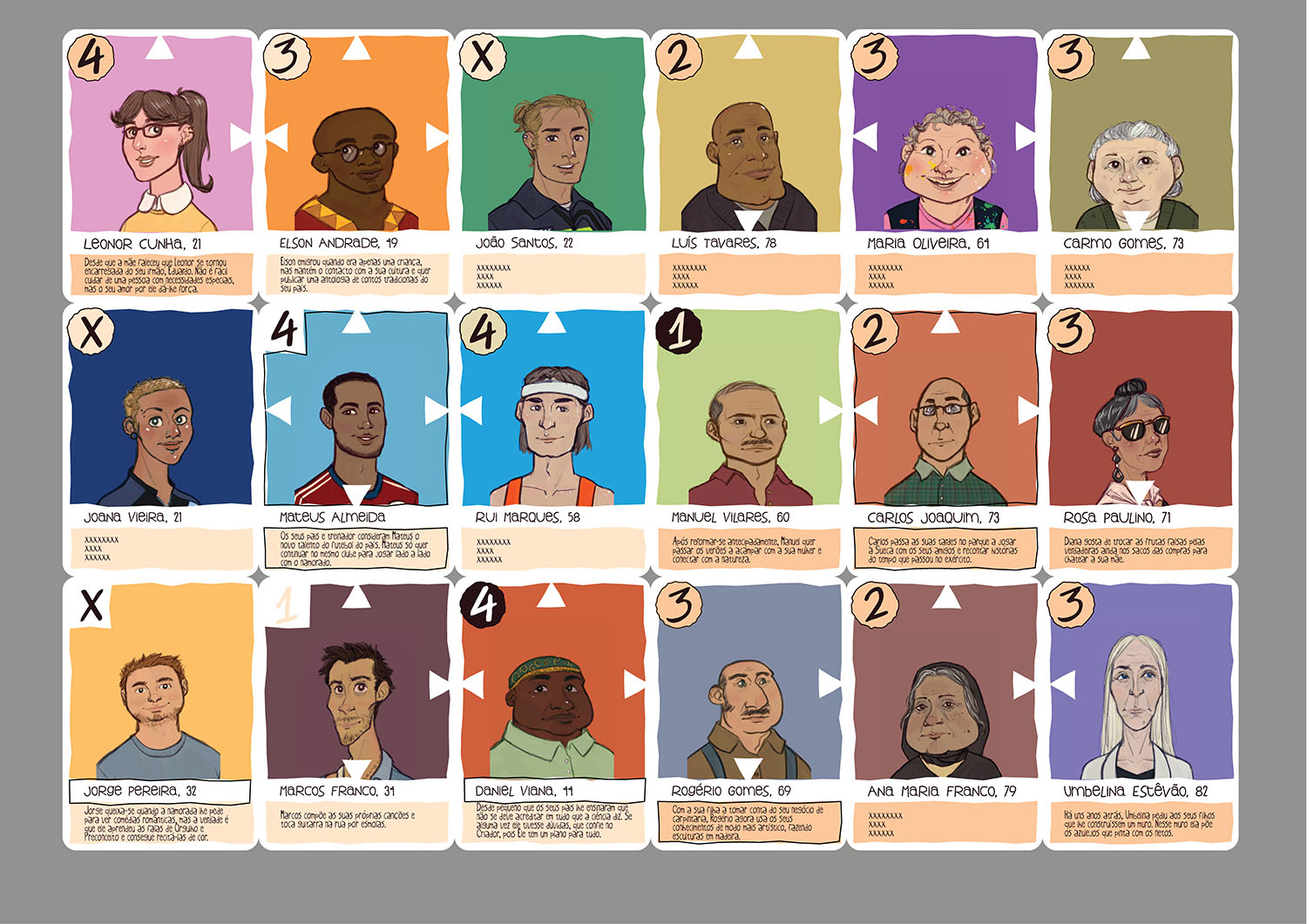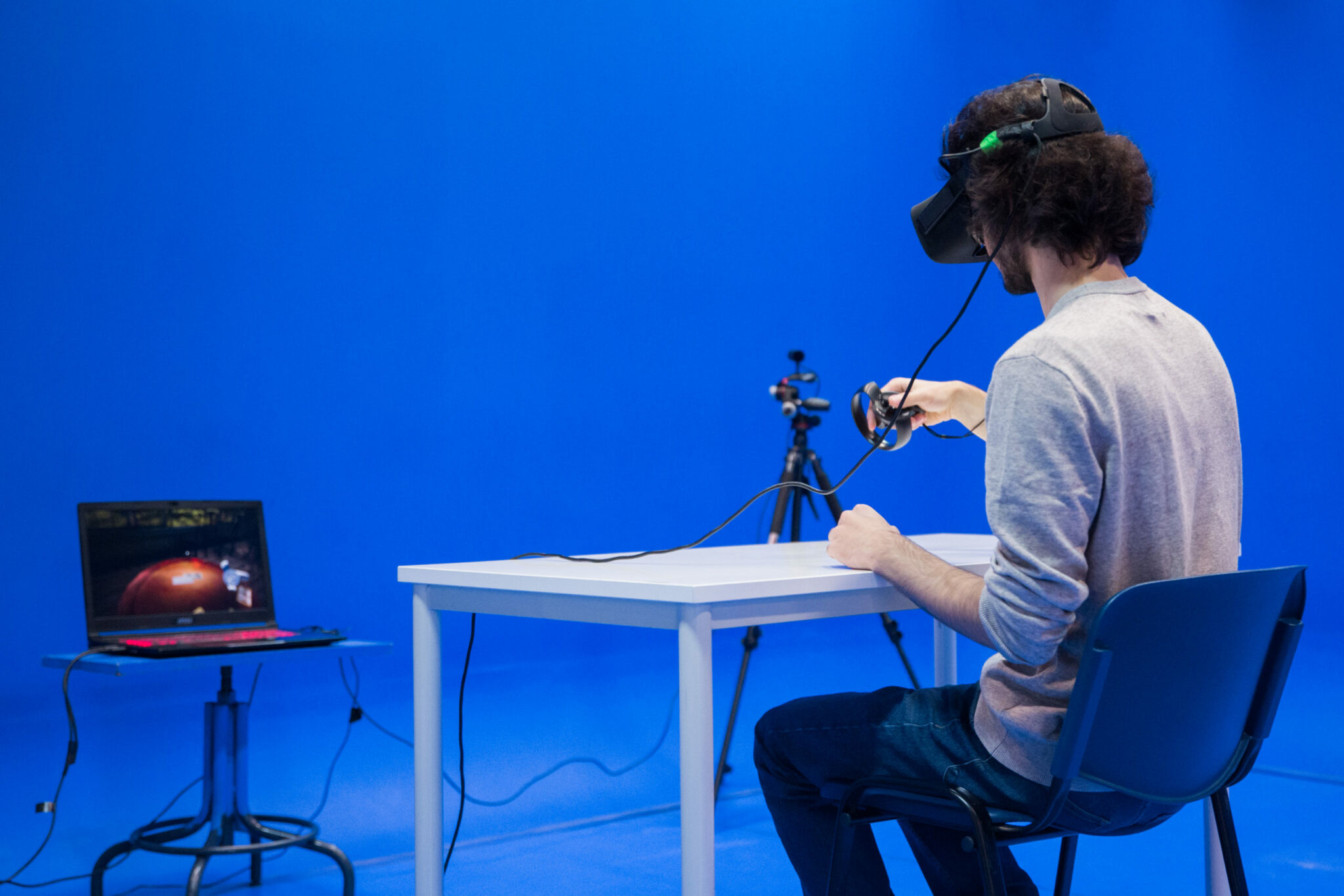Influenza: A Board Game
The INFLUENZA boardgame was designed and produced at MovLab as a game design study on whether narrative elements — namely creating a cast of characters to "humanize" a game's depiction of a community under threat by epidemics — is relevant for board games against vaccine hesitancy. The cast of character's reflects the local context of the target population for vaccine-education, in that they reflect the demographic makeup of the 2011 Portuguese national census. The cast of characters is highly-central to how INFLUENZA works as a game, but is also readily adaptable to other contexts without breaking the game, potentially making INFLUENZA a vaccination-education intervention that can be readily adapted to local contexts without losing effectiveness.
A first production version of the INFLUENZA game is ready, and preliminary testing has already concluded. Moving forward in research in INFLUENZA means measuring empathy and affect resulting from the design choice to add a cast of characters and its influence on the game's ability to impart computational thinking and educate for vaccination.

Experiential Museum of Psycholog
Conformism
This application aims to replicate the classic experiment in Psychology - Social Conformism
(Asch, 1951) and add new experimental conditions to study the role of the threat of contagion
of a disease on conformity behaviour (Murray & Schaller, 2011). This study also aims to
develop and make available innovative and interactive pedagogical tools representative of this
experiment. The project Hei-Lab Studio: Virtual Museum was recognized with the Fazer +
Award "Good Research Practices in Education" (https://www.ulusofona.pt/noticias/fazer-mais-
lusofona-apoia-ciencia-inovacao).
Dissonance
This study aims to replicate in digital context the classic experiment of the Cognitive
Dissonance (Festinger, 1957), and in parallel, to develop and make available innovative and
interactive pedagogical tools representative of this experiment. The project Hei-Lab Studio:
Virtual Museum was recognized with the Fazer + Award "Good Research Practices in
Education" (https://www.ulusofona.pt/noticias/fazer-mais-lusofona-apoia-ciencia-inovacao).
Lady in Distress
Digital adaptation of "Lady in distress" (Latané & Rodin, 1969), which is one of the most
influential experiments in Psychology. This scenario offers an opportunity to examine
bystander-effect in a three-dimensional, immersive, and multi-sensorial environment, where
users witness a simulated emergency (an avatar falls). This app could be used to examine the
user's actions (i.e., likelihood to help the victim) while creating variations in the environment
(e.g., number of passive bystanders).
Inattentional blindness
Digital adaptation of "Inattentional blindness" study by Daniel Simons and Christopher Chabris
(1999).
